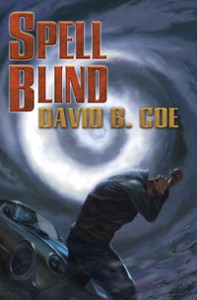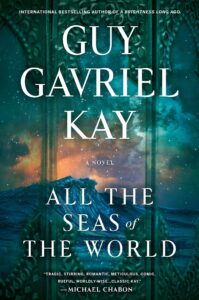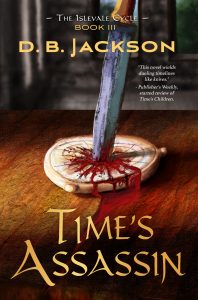Today’s post is a bit late, for which I apologize. It also offers a break from some of the more weighty topics I’ve covered in my Monday posts. I sometimes feel that I get too serious with my essays week after week, and though I know people enjoy the Musings posts, I also don’t want to be a downer.
Nancy and I have been streaming some new stuff so far this year. For a time, some of you may remember, we were new to the world of streaming (and new to the world of high-speed internet) and were just trying to catch up on the shows everyone was talking about. At this point, we have worked our way through some of the well-known stuff — Ted Lasso, The Marvelous Mrs. Maisel, The Crown, and others. We have enjoyed them (mostly — the most recent season of The Crown left us cold; we didn’t finish it) and are new venturing into newer shows and other titles that we’re finding interesting. I should mention here that we currently have access to Netflix, Prime, Disney+, and Apple TV. We have not yet ventured into Paramount+ or HBO Max, though we intend to eventually.
With that in mind, here are a few of our recent favorites:
The Diplomat — Netflix: Keri Russell and Rufus Sewell as a dysfunctional couple who are both high-profile diplomats. He is undisciplined and currently out of work; she is newly assigned as the ambassador to London, a position that should be low key and cushy but proves anything but. His jealousy of her success and his repeated attempts to manipulate events behind the scenes threaten to wreck their marriage, despite the electric bond between them. The dynamic between the two is fascinating and compelling, the acting is terrific, as is the supporting cast. One season is done, and the show has been renewed for another.
The Night Agent — Netflix: Gabriel Basso plays a low-level FBI agent who answers a late-night call from a young woman (played by Luciane Buchanan) being hunted by the killers who, for reasons she doesn’t understand, have just murdered her aunt and uncle. Events quickly point toward a mole in the White House and a deadly plot against the U.S. government. You don’t want to think too hard about any of what happens, because there are definitely plot holes. And the scripts are not about win any Pulitzers. But the chemistry between Basso and Buchanan is terrific, and the storyline is compelling enough to pull one along for all 10 first season episodes. One season is done; show renewed for another.
The Last Kingdom — Netflix: A historical series set in England at the time of King Alfred (before there actually was an England). Alexander Dreymon plays Uhtred of Bebbanburg, a Saxon-born man who was raised by invading Danes and finds himself caught again and again between Danish warriors and the Saxons who seek to establish a kingdom that will unite all of England. The action can be brutal, bloody, and gruesome, and there is a good deal of explicit sex. But if you’re okay with that, this is interesting, suspenseful, and really well-acted. Highly recommended. Five seasons complete and a final movie, Seven Kings Must Die, also on Netflix.
Star Wars: Andor — Disney+: This entry in the Star Wars mythos is one that I watched while Nancy was traveling, and it really surprised me. I was sort of lukewarm on The Mandalorian and expected to feel the same way about this series, which traces the early years of Cassian Andor’s (Diego Luna) initiation into the rebel cause. For those who don’t know, Andor was one of the lead characters in the Star Wars movie Rogue One. This show serves as a prequel to that, and to the original Star Wars movie. As it turns out, the show is thoughtfully done, and the performances are quite good. I offer this along with all the usual caveats about anything Star Wars-related. Rabid fans of the franchise will already know about this series, but if you’re a casual fan of the movies, you’ll probably enjoy this as well. One season, renewed for a second.
Derry Girls — Netflix: Brilliant, hilarious, and utterly bingeable. This show originally aired on Irish TV, where it was a huge hit. You can now watch it on Netflix. It follows a group of high school kids living in Northern Ireland during the 1990s as the Troubles continue to consume the land. The humor is spot on, making the occasional moments of serious drama are all the more effective. The ensemble cast is quirky and perfect. The episodes are only 30 minutes long and there are only three seasons of the show, making it easy to get through in a long weekend. You won’t be sorry. Oh, turn on close captioning when you watch; the accents are thick. Three seasons. Complete.
Lockwood and Co. — Netflix: We’re watching this one now. Based on the novels by Jonathan Stroud, Lockwood and Co. follows three teens who fight supernatural spirits in a dystopian future London. The teens are portrayed quite well by Ruby Stokes, Cameron Chapman and Ali Hadji-Heshmati, and thus far (five episodes in) the storyline is certainly fun and intriguing enough to hold our interest. There are some plot holes, but the action and dialogue move things along quickly enough to keep one from dwelling on them for too long. Unfortunately, the series was cancelled after one season (10 episodes). One season; cancelled.
And there we are.
Have a great week.









 Very early in my career, when my first book, Children of Amarid, was the only one I had out, I responded publicly to a online review from a less-than-delighted reader. Amazon was still a novelty (no pun intended) as was the notion of online reader reviews. (Hard to imagine, right? That the idea of readers offering reviews of the books they’d read should have been new and different and even a bit odd?) I don’t remember what the reader in question objected to about the book, nor do I remember what I said in my public response. The original book is out of print now — only the 2016 reissues are available on the site, so our exchange is lost to the ages. All I know is that someone criticized the book, I didn’t take the criticism well, and I took it upon myself to write a reply and post it to the Children of Amarid Amazon page.
Very early in my career, when my first book, Children of Amarid, was the only one I had out, I responded publicly to a online review from a less-than-delighted reader. Amazon was still a novelty (no pun intended) as was the notion of online reader reviews. (Hard to imagine, right? That the idea of readers offering reviews of the books they’d read should have been new and different and even a bit odd?) I don’t remember what the reader in question objected to about the book, nor do I remember what I said in my public response. The original book is out of print now — only the 2016 reissues are available on the site, so our exchange is lost to the ages. All I know is that someone criticized the book, I didn’t take the criticism well, and I took it upon myself to write a reply and post it to the Children of Amarid Amazon page. Some years later, soon after the release of Spell Blind, the first book in The Case Files of Justis Fearsson, another Amazon reviewer panned the book because my book was “a blatant rip-off” of Jim Butcher’s Harry Dresden books, “a ludicrous case of copycatting.” For the record, I didn’t copy Dresden at all. I had only read the first two books of the series, and the “copycatting” the reviewer claimed I’d done amounted to using tropes of the genre, not elements of Butcher’s work. And so I responded to the review, wanting to set the record straight.
Some years later, soon after the release of Spell Blind, the first book in The Case Files of Justis Fearsson, another Amazon reviewer panned the book because my book was “a blatant rip-off” of Jim Butcher’s Harry Dresden books, “a ludicrous case of copycatting.” For the record, I didn’t copy Dresden at all. I had only read the first two books of the series, and the “copycatting” the reviewer claimed I’d done amounted to using tropes of the genre, not elements of Butcher’s work. And so I responded to the review, wanting to set the record straight. After publishing
After publishing  As you know at this point, we are in the midst of release week for
As you know at this point, we are in the midst of release week for  The truth is, I have felt that way about all three volumes of this trilogy. The Islevale books were incredibly difficult to write. I knew going in that writing time travel would be really hard — as one friend told me, “It’ll make your brain explode.” So much can go wrong. We have to examine every plot point from every possible angle to make certain it holds up to logic, and to the simple reality that time travel gives us endless opportunities for do-overs. Put another way, every event in a time travel story is negotiable. Each one can be altered or reversed by the very plot devices on which our stories depend.
The truth is, I have felt that way about all three volumes of this trilogy. The Islevale books were incredibly difficult to write. I knew going in that writing time travel would be really hard — as one friend told me, “It’ll make your brain explode.” So much can go wrong. We have to examine every plot point from every possible angle to make certain it holds up to logic, and to the simple reality that time travel gives us endless opportunities for do-overs. Put another way, every event in a time travel story is negotiable. Each one can be altered or reversed by the very plot devices on which our stories depend. I hoped that
I hoped that  I frequently tell beginning writers that they need to self-define success, something which is really hard to do in this business. All too often we writers are forced by the nature of publishing to seek exterior affirmation for our work — reviews, sales, awards if we’re fortunate enough to win them. These are the things the industry values and so, naturally, they are the things we care about as well. The problem with this is, the industry is cruel and capricious. We all know of good, even great, books that go unnoticed and unacknowledged. We all have seen mediocrity rewarded with terrific sales and undeserved attention. And we know that this is true in the world beyond publishing as well. Life is not always fair.
I frequently tell beginning writers that they need to self-define success, something which is really hard to do in this business. All too often we writers are forced by the nature of publishing to seek exterior affirmation for our work — reviews, sales, awards if we’re fortunate enough to win them. These are the things the industry values and so, naturally, they are the things we care about as well. The problem with this is, the industry is cruel and capricious. We all know of good, even great, books that go unnoticed and unacknowledged. We all have seen mediocrity rewarded with terrific sales and undeserved attention. And we know that this is true in the world beyond publishing as well. Life is not always fair.